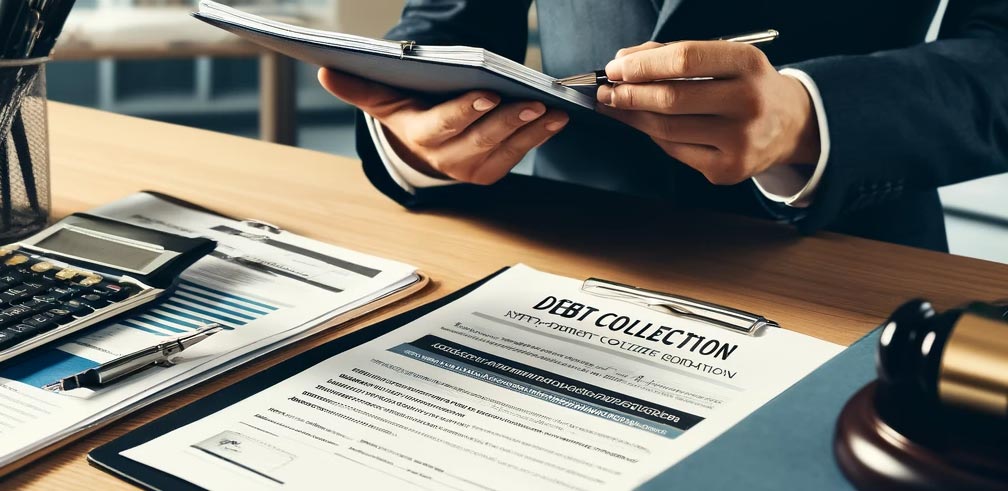What to Do When You Receive an Unexpected Summons from the Police or Prosecutors
무너진 재정의 잔해 속에서도, 새로운 삶을 향한 길은 법적 권리를 통해 열릴 수 있습니다.

In my experience, the happiest people in the world are those who never have to visit a police station, prosecutor's office, or court. Unfortunately, that is not the reality for most of us.
As victims, perpetrators, or witnesses (bystanders), we may find ourselves summoned to the police, prosecutors, or court as plaintiffs, defendants, or witnesses. It is often a shock when a summons arrives at our home or workplace, or when we receive a phone call related to a summons. We may wonder why we need to appear when we haven’t done anything wrong. To make matters worse, there may be sudden searches of our homes or offices, and we may even face travel bans when trying to leave the country. Our bank accounts and phone records might be tracked without us knowing.
Among the many inquiries I receive as part of my work, one of the most common is, “What should I do if I am summoned to appear for an investigation at the police or prosecutor’s office?” In such cases, I advise people to first ask the investigator whether they are being called as a suspect or as a witness. If they are a witness, there is no need to appear for an interrogation. A witness is someone cooperating with the investigation, not someone being investigated.
However, due to certain investigative practices, even witnesses are often asked to appear for questioning at the police or prosecutor’s office. Furthermore, investigators may request that they appear at a specific time without providing clear reasons for the questioning or the time of the investigation.
In my case, if someone is being accused or charged, I first advise them to file a request for disclosure of information at the police station. This is important because the person should know the specific reasons for their summons before they attend the investigation.
Once they have received the details of the complaint or accusation through the disclosure of information request, I recommend that they prepare a written explanation addressing the contents of the complaint before attending the investigation. I also suggest they propose several convenient dates for the investigation and coordinate the time with the investigator. Additionally, I advise them to inform the investigator that they would like to have their lawyer present during the questioning and that the lawyer will contact the investigator to discuss the schedule.
In most cases, the person being investigated is at a disadvantage, and since investigators hold more power, they may feel compelled to comply with the investigator’s requested time and date for questioning, even though they might face inconvenience or difficulties.
However, this is a mistaken belief. Ordinary citizens, especially those with busy lives, may only be available on weekends due to work or business commitments during weekdays. They may also have family responsibilities in the evenings or be in poor health. It is their right to adjust the investigation time based on their circumstances, and they can request changes in the investigation date and time.
Nonetheless, there are instances where investigators unilaterally set the investigation date and time. In some cases, an individual may be summoned for questioning on consecutive days, which is another inconvenience they may face.
Another issue that arises during investigations is that statements made during the questioning are sometimes not properly recorded in the investigation report, or the investigator may fail to include important details from the conversation. In such situations, I advise people to request a copy of the investigation report through an information disclosure request, review it for any inaccuracies or missing details, and submit a written statement correcting or supplementing any discrepancies.
Moreover, there are cases where people are deceived through fraudulent messages about police or prosecutor investigations, such as voice phishing scams. Scammers use fake details about the investigators’ names and contact information to trick victims into sending money. Investigators rarely provide their real names or contact details, citing the need to protect investigative secrecy, and they do not provide timely updates on the progress of the investigation.
The person under investigation has the right to know their rights. As a victim, they have the right to be informed about personal protection measures, as a suspect, they have the right to have a lawyer present during questioning, and they have the right to adjust the investigation schedule for health reasons. If the fairness of the investigator is in doubt, they also have the right to request the disqualification of the investigator.
More importantly, some investigators may shift the burden of proof onto the person being questioned or hold biased views such as, “If you weren’t guilty, why did you hire a lawyer?” or “You may be arrested.” These prejudiced statements can severely affect an individual’s mental health, leading to conditions such as depression, insomnia, or even suicide. It is crucial that we understand the weight of these words.
Bucheon Personal Rehabilitation Lawyer 개인회생 상담 신청
끝없는 빚의 터널 속에서도 빛은 있습니다. 개인회생과 파산은 절망이 아닌 희망의 과정입니다. 변호사는 당신의 곁에서 그 길을 열고, 당신이 다시 서도록 돕는 이정표가 되어줄 것입니다.
이혼 전문 법률사무소
http://www.divorcekorea.com/
이혼 전문 법률사무소는 이혼 및 가사 소송과 관련된 전문적인 법률 서비스를 제공하는 플랫폼으로, 이혼, 양육권, 위자료, 재산분할 등 다양한 가사 문제에 대한 상세한 정보를 제공합니다. 특히, 이혼 절차와 관련된 구체적인 가이드와 법적 조언을 통해 복잡한 상황에서도 명확한 방향성을 제시하며, 전문 변호사들의 ··
무료법률상담 전문 변호사
https://lawis.tistory.com/
무료법률상담 전문 변호사 블로그는 법률과 관련된 다양한 주제를 다루는 전문 블로그로, 개인회생, 파산, 이혼, 형사 소송 등 실생활과 밀접한 법률 정보를 제공합니다. 특히, 복잡한 법적 절차와 개념을 쉽게 이해할 수 있도록 상세하고 체계적으로 정리된 글들이 돋보입니다. 또한, 실제 사례와 구체적인 조언을 ··

